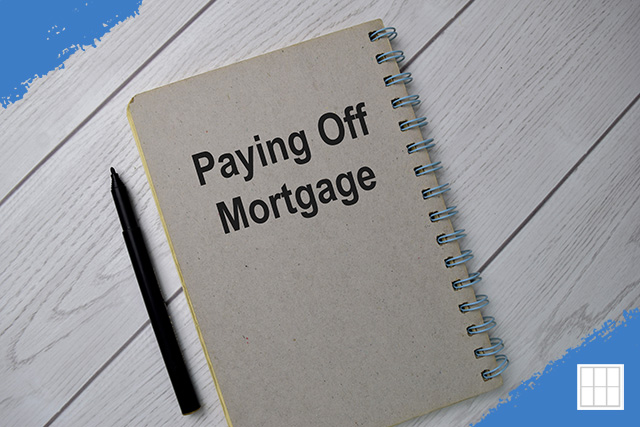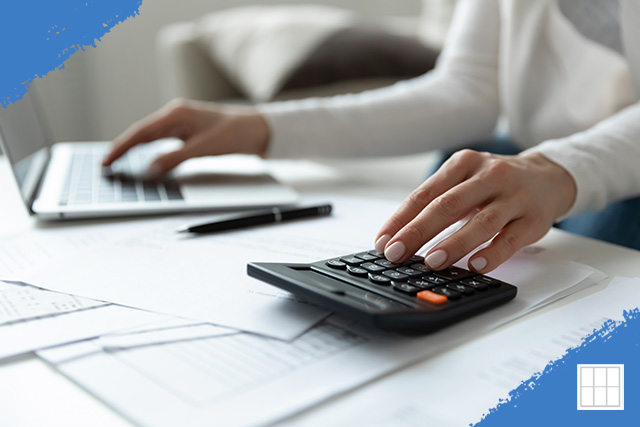When buying a home, understanding the various components of your mortgage is crucial. One important…

Paying Off Your Mortgage Early: Strategies, Benefits, and Drawbacks
Owning a home outright is a dream for many—a symbol of financial freedom and security. Paying off your mortgage early can accelerate that dream, freeing you from monthly payments and reducing the interest you pay over time. But is it always the best financial move? In this post, we’ll explore proven strategies to pay off your mortgage ahead of schedule, weigh the benefits, and consider the potential drawbacks to help you make an informed decision.
Strategies to Pay Off Your Mortgage Early
There are several practical approaches to shaving years off your mortgage term. Each method requires discipline and planning, but they can be tailored to fit your budget and goals.
1. Make Extra Principal Payments
One of the simplest ways to pay off your mortgage early is by adding extra money to your monthly payment, specifically toward the principal. Even small additional amounts can make a big difference over time.
- How it works: When you pay more than your required monthly amount, instruct your lender to apply the extra to the principal balance, not the interest. This reduces the amount you owe faster, cutting down the total interest accrued.
- Example: On a $300,000, 30-year mortgage at 4% interest, adding $100 monthly to the principal could save you over $35,000 in interest and shorten the loan by about 4 years.
Tip: Check with your lender to ensure there are no prepayment penalties, though these are rare with modern mortgages.
2. Switch to a Biweekly Payment Schedule
Instead of paying once a month, split your monthly payment in half and pay every two weeks.
- How it works: Because there are 52 weeks in a year, you’ll make 26 half-payments—or the equivalent of 13 full monthly payments—instead of 12. This extra payment goes toward the principal, reducing your balance faster.
- Example: On that same $300,000 mortgage, biweekly payments could shave off about 4-5 years and save you tens of thousands in interest.
Tip: Some lenders offer biweekly plans directly, or you can set it up manually. Just ensure the extra payments target the principal.
3. Refinance to a Shorter-Term Loan
Refinancing from a 30-year mortgage to a 15- or 20-year term can drastically reduce your payoff timeline.
- How it works: Shorter-term loans typically come with lower interest rates, and the accelerated schedule forces you to pay off the principal faster. However, monthly payments will be higher.
- Example: Refinancing a $300,000 loan from a 30-year at 4% to a 15-year at 3.5% increases your monthly payment from $1,432 to $2,144 but saves you over $100,000 in interest.
Tip: Only pursue this if you can afford the higher payments and if refinancing costs (closing fees, etc.) don’t outweigh the savings.
4. Round Up Your Payments
A low-effort strategy is to round up your monthly payment to the nearest $50 or $100.
- How it works: If your payment is $1,432, rounding to $1,500 adds $68 to the principal each month. It’s a subtle change that compounds over time.
- Example: On a $300,000 loan, rounding up by $100 could cut a year or two off the term and save thousands in interest.
5. Use Windfalls Wisely
Apply unexpected cash—like tax refunds, bonuses, or inheritances—directly to your mortgage principal.
- How it works: A lump-sum payment reduces your balance significantly, lowering the interest calculated on the remaining term.
- Example: A $5,000 windfall applied to a $300,000 mortgage at year 10 could save over $10,000 in interest and shorten the loan by a year.
Benefits of Paying Off Your Mortgage Early
The appeal of early mortgage payoff goes beyond just owning your home sooner. Here are the key advantages:
1. Interest Savings
The longer your mortgage term, the more interest you pay. Paying it off early can save you tens or even hundreds of thousands of dollars, depending on your loan size and rate.
2. Financial Peace of Mind
Eliminating your mortgage payment—one of your largest monthly expenses—frees up cash flow for savings, investments, or simply enjoying life without debt hanging over your head.
3. Increased Equity
Every extra payment builds equity faster, giving you more financial leverage for future loans or the ability to sell your home with a bigger profit.
4. Retirement Readiness
Entering retirement without a mortgage can reduce your fixed expenses, making it easier to live on a fixed income or pursue passions without financial strain.
Potential Drawbacks to Consider
While the benefits are compelling, paying off your mortgage early isn’t a one-size-fits-all solution. Here are some drawbacks to weigh:
1. Loss of Liquidity
Tying up extra cash in your home reduces your liquid savings. If an emergency arises (medical bills, job loss), accessing home equity through a loan or line of credit takes time and may come with fees.
2. Opportunity Cost
Money paid toward your mortgage could be invested elsewhere—like the stock market, where average returns (historically 7-10% annually) might outpace your mortgage interest rate (e.g., 4%). For example, $100 extra per month invested at 8% over 30 years could grow to $135,000, far exceeding typical interest savings.
3. Lost Tax Deduction
If you itemize deductions, mortgage interest can lower your taxable income. Paying off early eliminates this benefit, though for many, the deduction doesn’t outweigh the interest savings.
4. Higher Monthly Commitments
Strategies like refinancing to a shorter term or aggressive extra payments can strain your budget, leaving less room for other goals like travel, education, or retirement savings.
Is It Right for You?
Deciding whether to pay off your mortgage early depends on your financial situation, goals, and risk tolerance. Ask yourself:
- Do you have an emergency fund? Ensure you have 3-6 months of expenses saved before diverting extra cash to your mortgage.
- What’s your interest rate? If it’s low (e.g., under 4%), investing might yield better returns. If it’s high (e.g., 6%+), paying off early makes more sense.
- How close are you to retirement? Eliminating debt might take priority as you near a fixed-income phase.
- What’s your emotional stance on debt? Some value the peace of mind over mathematical optimization.
Final Thoughts
Paying off your mortgage early is a powerful way to gain financial freedom, save on interest, and secure your future. Strategies like extra payments, biweekly schedules, or refinancing offer flexible paths to get there. However, it’s not without trade-offs—liquidity, opportunity costs, and tax implications deserve careful thought. Crunch the numbers, assess your priorities, and consider consulting a financial advisor to tailor a plan that fits your life. Whether you choose to pay off early or invest elsewhere, the key is making an intentional choice that aligns with your long-term vision.
What’s your take? Have you tried any of these strategies, or are you weighing the decision? Feel free to contact to learn more about which option is best for you.


